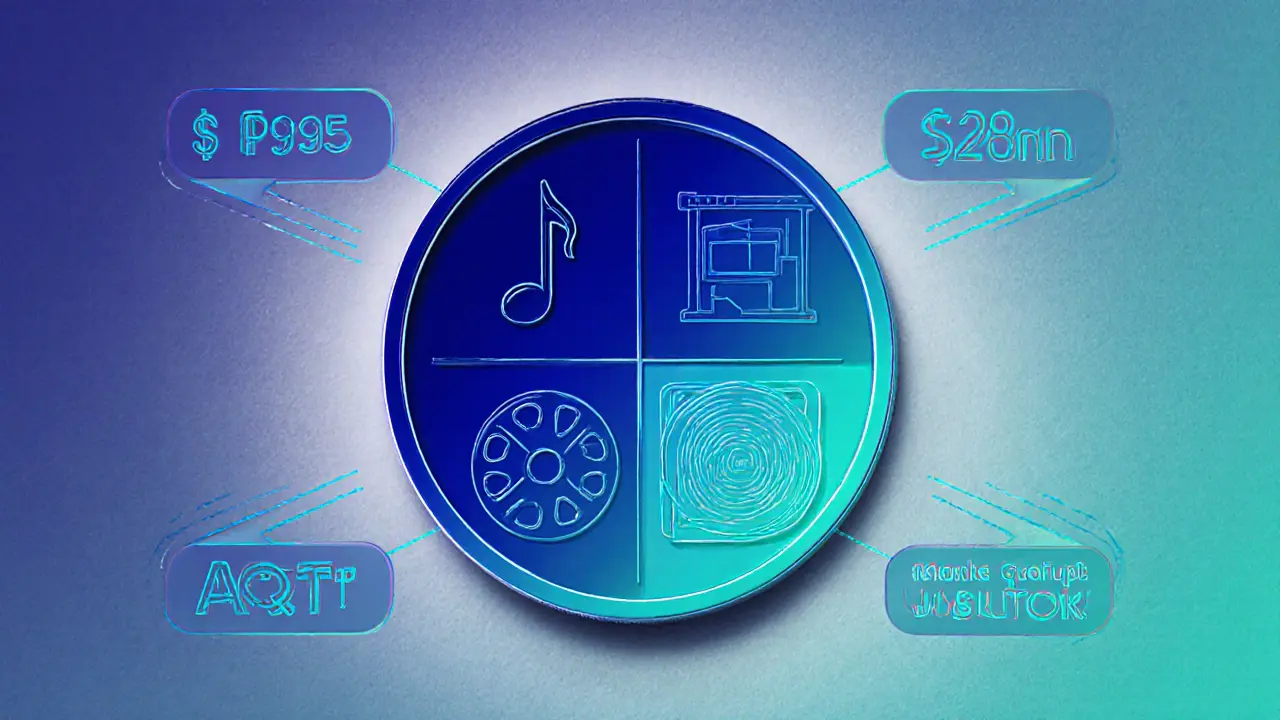IP Tokenization: Unlocking Digital Ownership of Intellectual Property
When talking about IP tokenization, the process of converting intellectual property rights into blockchain‑based tokens that can be bought, sold, or licensed. Also known as Intellectual Property tokenization, it lets creators treat patents, music, art, or software like any other digital asset.
At its core, NFT, a non‑fungible token that uniquely represents ownership or provenance on a blockchain acts as the wrapper for tokenized IP. Smart contracts, self‑executing code that enforces the terms of a deal without intermediaries enforce royalty splits, licensing periods, and transfer rules. All of this runs on a blockchain, a decentralized ledger that records every token movement immutably, providing the trust layer that traditional IP registries lack.
Why Creators and Investors Care
First, IP tokenization turns a static right into a tradable asset, opening new financing routes for artists, inventors, and startups. Second, it introduces fractional ownership – you can own 0.01% of a patent and earn a slice of future royalties. Third, the transparency of blockchains cuts down on royalty fraud because every transaction is publicly verifiable. In practice, a music producer can mint a song as an NFT, embed a smart contract that automatically pays 5% of streaming revenue to each co‑writer, and then sell 10% of the song’s future earnings to fans. This model mirrors the “IP‑NFT” approach highlighted in projects like Cerebrum DAO, where neuroscience research data is tokenized and governed by token holders.
But the ecosystem isn’t just about tech. Legal frameworks are catching up, with jurisdictions recognizing blockchain‑recorded ownership for certain IP classes. Digital rights management (DRM) systems are being rebuilt on smart contracts, allowing creators to set custom access rules without relying on opaque platforms. Meanwhile, marketplaces are emerging that specialize in buying and selling tokenized patents, trademarks, and creative works, giving investors a diversified entry point into the knowledge economy.
Below you’ll find a curated set of articles that dig deeper into each piece of the puzzle. From a detailed look at how NFTs serve as IP wrappers, to step‑by‑step guides on writing smart contracts for royalty distribution, to case studies on tokenized biotech research, the collection gives you both the theory and the hands‑on tools you need to explore IP tokenization in practice. Ready to see how the pieces fit together? Let’s jump into the resources.

Alpha Quark Token (AQT) Explained: Crypto for IP Tokenization
Alpha Quark Token (AQT) is an Ethereum-based utility crypto that tokenizes intellectual property, enabling NFT trading, staking, and metaverse experiences.
